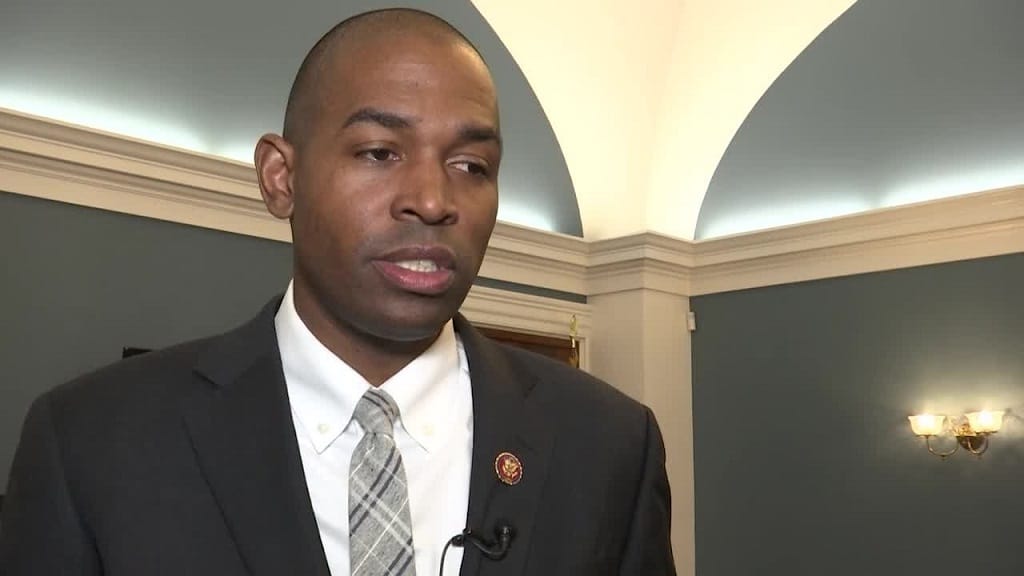Speed And Mapping Bills, LinkedIn Data Harvested, Facebook Tackles Fake Review Groups
Delgado’s speed and mapping bills, 500M LinkedIn accounts for sale, and 16,000 Facebook groups axed for fake reviews.

April 13, 2021 — On Monday, Representative Antonio Delgado, D-NY, reintroduced the Broadband Speed Act, which would require internet service providers to report accurate, yearly speed data to the Federal Communications Commission and introduced a new bill to improve flawed broadband mapping.
“Our rural communities need broadband internet that is accessible, reliable, and matches their internet needs,” said Delgado. “Slow broadband speeds are untenable for our young students taking classes online, web-based small business owners, and families working from home. The Broadband Speed Act would require internet service providers to deliver accurate speed data — not inaccurate estimates.”
Enforcing the Broadband Speed Act would require internet service providers to report to the FCC the actual speed they can provide, rather than the maximum speed that might be possible in 7-10 business days under the current law.
The FCC would use this data to determine which broadband connectivity areas offer the speeds advertised and which areas have gaps in service. This bill also requires that new FCC funding awards be used for speeds of 100 Mbps or greater.
The new bill to improve flawed broadband mapping was introduced as a bipartisan bill to address the digital divide and provide broadband service at affordable prices for rural Americans. It corrects mistakes in federal broadband mapping practice and empowers local communities to dispute incorrect FCC claims regarding internet service status, the bill said.
“Flawed service maps compiled by the FCC paint an inaccurate picture of upstate broadband access,” said Delgado. “The Community Broadband Mapping Act gives our communities the ability to collect their data on broadband coverage so that they can challenge the FCC’s inaccurate mapping. It is unacceptable that in the 21st century, folks live without a reliable internet connection in the wealthiest county in the world. As the pandemic has made even more clear, broadband service isn’t a luxury—it’s a necessity.”
The Community Broadband Mapping Act grants USDA Rural Utility Service grants to local governments, electric/telephone groups, economic development organizations, and small internet providers so that they can collect information on local broadband coverage. This will provide communities incorrectly identified by the FCC as having broadband access with the information they need to contest the FCC’s designation.
500 million LinkedIn Account Numbers Are Up For Sale on a Hacker Site
According to LinkedIn, data harvested from 500 million profiles are part of a database for sale on a site popular with hackers, CNN reports.
In the first report to surface about the sale, CyberNews said that an archive was being offered for auction on a forum, including user IDs, names, emails, phone numbers, genders, professions, and links to social networks.
LinkedIn, which is owned by Microsoft, said the data for sale is an “aggregation from several websites and companies.” The LinkedIn user data does not include any information other than what has been made public on users’ profiles, according to LinkedIn.
“This is not a LinkedIn data breach, and no private member account data from LinkedIn was included in what we’ve been able to review,” the company said.
“When anyone tries to take member data and use it for purposes LinkedIn and our members haven’t agreed to, we work to stop them and hold them accountable,” LinkedIn added in a statement.
Thousands of Facebook Groups Have Been Removed for Trading Fake Reviews
Facebook has removed 16,000 groups for posting fake reviews on its platform in the United Kingdom, following criticism by the country’s regulator.
Facebook signed a deal with the Competition and Markets Authority in January 2020 to “better identify, investigate and remove pages and groups that have fake and misleading reviews, and prevent them re-appearing.”
Several unscrupulous traders engaged in a practice of buying fake positive reviews to boost sales on e-commerce sites – or leaving negative reviews on competitors’ sites – which was frequently coordinated on Facebook and Instagram, the CMA found.
Although Facebook agreed to act, a follow-up investigation showed that the “illegal trade in fake reviews” was continuing, the CMA said, and it had to intervene for a second time.
“Facebook must package size and scope all it can to stop the trading of such content on its platforms,” said Andrea Coscelli, the chief executive of the CMA. “After we intervened again, the company made significant changes – but it is disappointing it has taken them over a year to fix these issues.
If a user “repeatedly” creates fake review groups, Facebook asserts that it will suspend or ban the users and introduce new technology that flags affected review groups all by themselves. Facebook announced that finding and joining fake review groups will be more challenging.
“We have engaged extensively with the CMA to address this issue. Fraudulent and deceptive activity is not allowed on our platforms, including offering or trading fake reviews. Our safety and security teams are continually working to help prevent these practices,” a Facebook spokesperson said.








